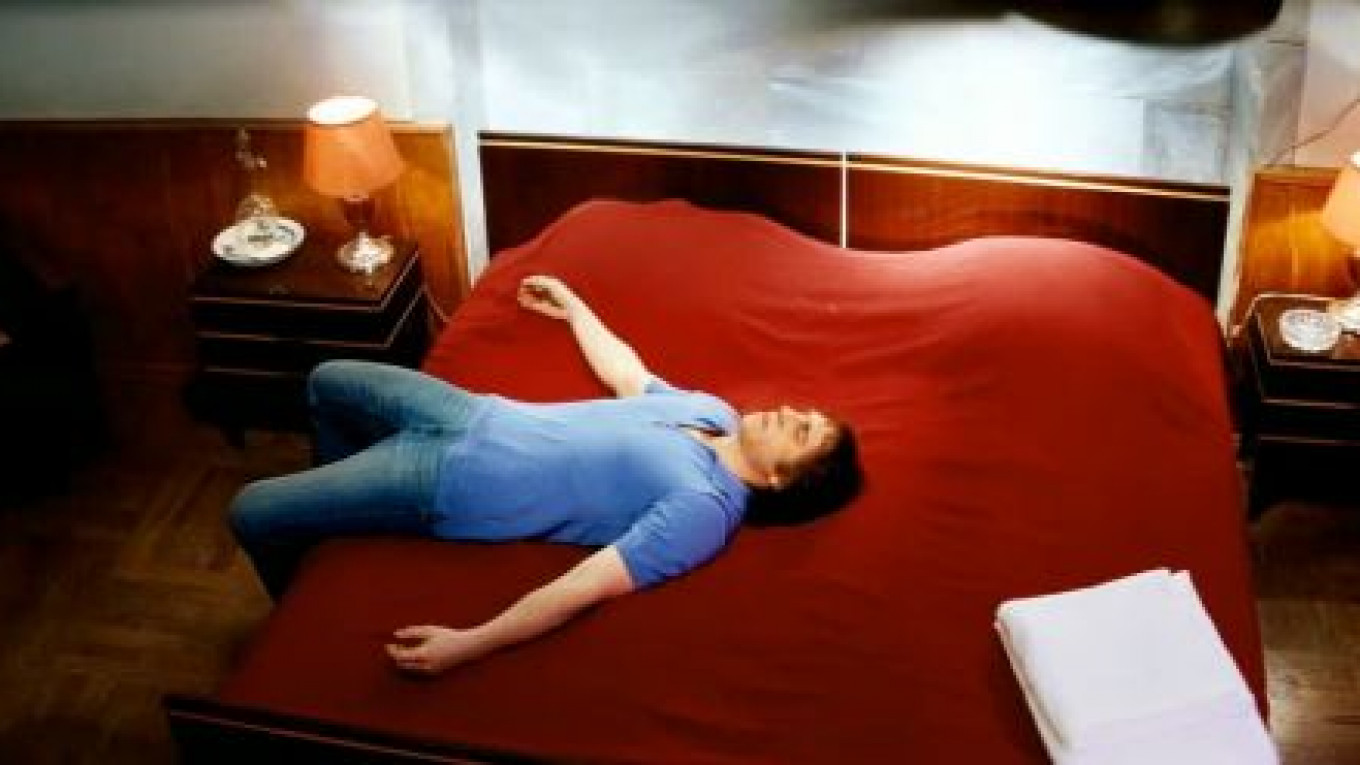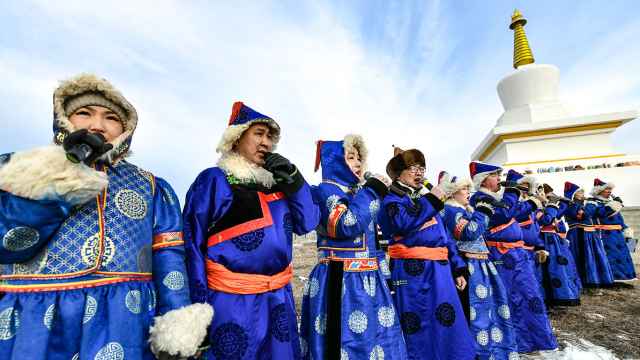Thirty-one years after Vysotsky's death during the Moscow Olympics, the first-ever biopic has made it to the screen, drawing crowds, controversy and some displeasure from fans of one of the most revered artists in the Soviet Union.
Singer, theater and film actor Vysotsky was a hero to millions around the Soviet Union and especially loved for his songs, whether his husky voice was singing satirical sketches on Soviet life or war songs.
Finding an actor to play such a charismatic man and getting the audience to accept him in the role was impossible, so filmmakers decided to recreate Vysotsky.
The actor who plays Vysotsky was made up for five hours every day before filming. He does look like Vysotsky, but many are not convinced by the double, complaining of something unreal about the creation.
"If I could play the role with my own face, it would distract the viewer," said the anonymous actor who plays Vysotsky in an interview with the Komsomolskaya Pravda newspaper, "This is an actor who played this and that. Here is Vysotsky and nothing else."
Filmmakers have refused to say who plays Vysotsky, but many suspect that it is actor Sergei Bezrukov, who plays a minor role in the film. Bezrukov has denied it, but that could be a PR stunt.
"Vysotsky: Grateful for Being Alive" focuses on one episode a year before his death, when he was on a concert tour to the Uzbek republic and collapsed, suffering clinical death. The script for the film was written by Vysotsky's son, Nikita.
In a rare television interview, Vysotsky once modestly described himself as just a singer, but in a country where rock music was banned and show business didn't exist the country's most beloved bard lived a rock star life.
"Vysotsky let himself do what not even Brezhnev would do," said former Liberal Democrat Alexei Mitrofanov, who knew Vysotsky when he was alive.
He famously had one of the few Mercedes in the country — the car company sponsors the film — and an expensive drug habit. His girlfriend in the film is shown bringing him drugs to Uzbekistan.
However, the film is as much about the characters who surround Vysotsky as about the singer, the hangers-on, the privileged life of party secretaries and KGB sympathizers. The agency spied on Vysotsky, but he also had powerful fans in high circles, which is believed to have saved him from trouble.
"Vysotsky in the film is an object, not a subject: He is openly used and, if they are worried about his health, then it is about the health of a chicken that lays the golden egg," Rossiiskaya Gazeta wrote.
One of the highlights of the film is Andrei Smelyakov, who plays a KGB officer watching over Vysotsky as he investigates the organizers of his Tashkent concert. Smelyakov's character is shown hearing the news of Vysotsky's clinical death, and his eyes tear up in one of the strongest scenes in the movie.
The film has had mixed reviews but has been a hit with Russian viewers, with $21 million at the box office since it opened two weeks ago.
"People want to see such a hero. Today we live in a time without heroes," said the anonymous actor who plays Vysotsky.
A Message from The Moscow Times:
Dear readers,
We are facing unprecedented challenges. Russia's Prosecutor General's Office has designated The Moscow Times as an "undesirable" organization, criminalizing our work and putting our staff at risk of prosecution. This follows our earlier unjust labeling as a "foreign agent."
These actions are direct attempts to silence independent journalism in Russia. The authorities claim our work "discredits the decisions of the Russian leadership." We see things differently: we strive to provide accurate, unbiased reporting on Russia.
We, the journalists of The Moscow Times, refuse to be silenced. But to continue our work, we need your help.
Your support, no matter how small, makes a world of difference. If you can, please support us monthly starting from just $2. It's quick to set up, and every contribution makes a significant impact.
By supporting The Moscow Times, you're defending open, independent journalism in the face of repression. Thank you for standing with us.
Remind me later.






